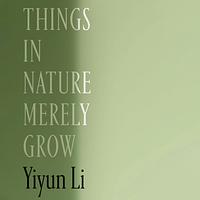You need to sign in or sign up before continuing.
Take a photo of a barcode or cover
challenging
dark
emotional
reflective
sad
medium-paced
How do you put into words things that can’t be put into words? If anyone comes close, it’s Yiyun Li. Can’t recommend more.
this book is very unique, and definitely not for everyone. The writing really resonated with me for some reason, I think because she really keeps it real discussing her thoughts and feelings after both her sons died by suicide 6 years apart.
an austere, unflinching portrait of anguish, wisdom, and humanity. this book wrecked me.
“When life is full of tasks, obligations, and events, time carries us, too swiftly it seems, for is it not our perpetual protest about life that there is not enough time for this or that? But those who complain about that—myself at different phases of my life, too—forget how fortunate they are: Life does not guarantee that time has the capacity to carry us. Time flies, time is fleeting, but then there comes a moment when time, no longer nimble-footed, no longer winged, is for us to carry.”
“When life is full of tasks, obligations, and events, time carries us, too swiftly it seems, for is it not our perpetual protest about life that there is not enough time for this or that? But those who complain about that—myself at different phases of my life, too—forget how fortunate they are: Life does not guarantee that time has the capacity to carry us. Time flies, time is fleeting, but then there comes a moment when time, no longer nimble-footed, no longer winged, is for us to carry.”
reflective
sad
slow-paced
challenging
emotional
reflective
sad
medium-paced
Moderate: Suicide
challenging
dark
emotional
reflective
sad
slow-paced
Reading about managing life after death can be difficult for me, especially when the writing is poetic, frank, and radically accepting. Li's book is unflinching and honest, especially when acknowledging the confusion that comes after death. Reading Things In Nature Merely Grow felt like seeing my reflection in the mirror at times. I've never had a child, let alone have one die, and I won't dishonor the author by comparing my losses to her own. However, I relate to her deeply on the levels of her childhood experiences, her suicide attempts, her mental health journey, and how my own recovery often feels insufficient when it cannot save others.
emotional
reflective
sad
medium-paced
fast-paced
emotional
reflective
slow-paced
Li's unflinching ability to sit in the abyss after the death of both of her sons to suicide makes this a hard read. But it is also a relief to read a work of mourning that refuses to follow our cultural patterns of grief (in one striking moment, Li rejects the word grief because it implies that there should be a process and an end to her grieving). It feels strange to call such a stark book beautiful, but it is.






